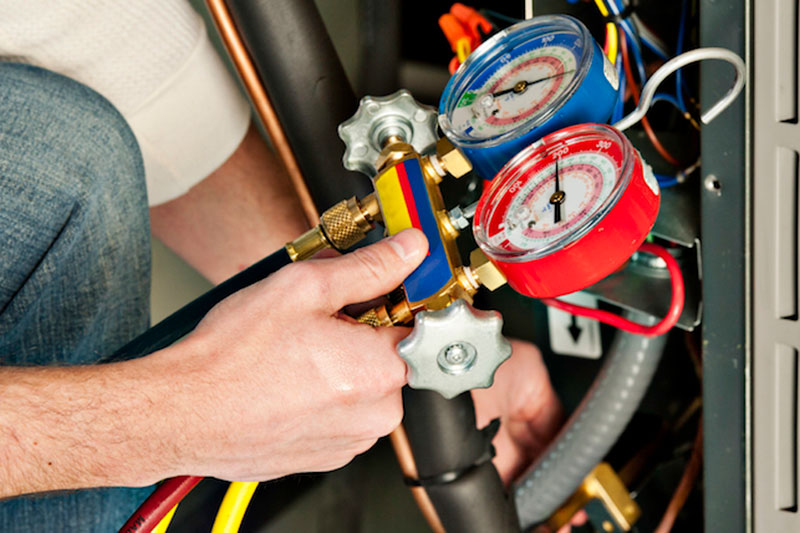
You might not think a lot about how your air conditioner operates, but it requires refrigerant to keep your residence fresh. This refrigerant is bound by environmental laws, since it contains chemicals.
Based on when your air conditioner was installed, it may use R-22, R-410A or R-32 refrigerant. We’ll go over the differences and which air conditioner refrigerants are being phased out in Houston, as well as how these phaseouts impact you.
What’s R-22 and Why Is It No Longer Being Made?
If your air conditioner was put in before 2010, it likely contains Freon®. You can learn if your air conditioner uses it by calling us at 713-322-4318. You can also look at the name plate on your air conditioner condenser, which is located outside your residence. This sticker will include details on what type of refrigerant your AC has.
Freon, which is also known as R-22, contains chlorine. Scientists consider R-22 to be harmful to the earth’s ozone layer and one that results in global warming. The Environmental Protection Agency, which manages refrigerants in the United States, banned its creation and import in January 2020.
Should I Replace My R-22 Air Conditioner?
It differs. If your air conditioning is operating fine, you can continue to run it. With yearly air conditioner maintenance, you can expect your air conditioning to last around 15–20 years. However, the Department of Energy reports that replacing a 10-year-old air conditioner could save you 20–40% on yearly cooling bills!
If you don’t get a new air conditioner, it may lead to an issue if you require air conditioning repair in the future, specifically for refrigerant. Repairs can be higher-priced, since only reduced levels of recycled and reclaimed R-22 is accessible.
With the phaseout of R-22, most new air conditioners now use Puron®. Also called R-410A, this refrigerant was developed to keep the ozone layer in good shape. As it needs a different pressure level, it isn’t compatible with air conditioners that use R-22 for cooling.
However, Puron still has the likelihood to create global warming. As a result, it might also eventually be phased out. Although it hasn’t been communicated yet for residential air conditioners, it’s expected sometime this decade.
What Refrigerant Will Replace R-410A?
In preparation of the phaseout, some companies have started using R-32 in new air conditioners. This refrigerant rates low for global warming potential—around one-third less than R-410A. And it also reduces energy use by around 10%, according to the Intergovernmental Panel on Climate Change’s Fourth Assessment Report. That’s savings that could be forwarded on to you through your cooling expenses.
Air Current AC & Heat Can Provide Support with All Your Air Conditioning Needs
In summary, the changes to air conditioner refrigerant probably won’t impact you very much until you have to have repairs. But as we discussed previously, refrigerant-related repairs might be pricier due to the restricted levels that are accessible.
Not to mention, your air conditioner frequently stops working at the worst time, typically on the warmest day when we’re getting lots of other calls for AC repair.
If your air conditioner requires an outdated refrigerant or is getting old, we recommend installing an up-to-date, energy-efficient air conditioner. This delivers a hassle-free summer and might even lower your cooling bills, especially if you select an ENERGY STAR®-rated air conditioner. Plus, Air Current AC & Heat has many financing programs to make your new air conditioner even more affordable. Contact us at 713-322-4318 to start now with a free estimate.
